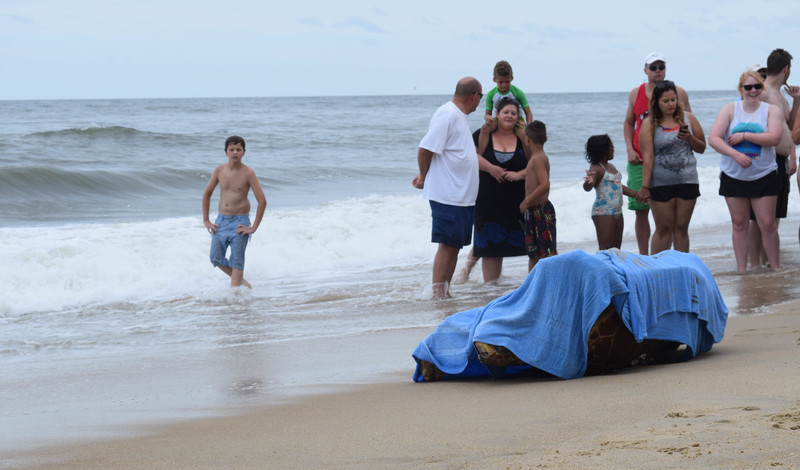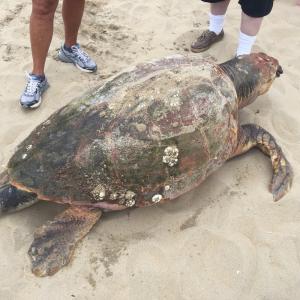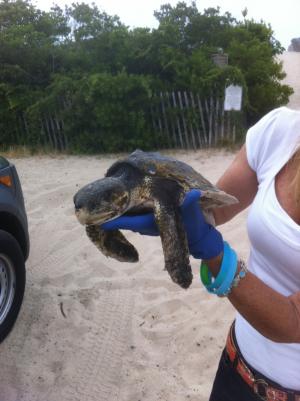Male sea turtle found dead in Rehoboth
A sad sight drew a large crowd at Rehoboth Beach Aug. 10 when a full-grown, dead loggerhead sea turtle washed ashore.
Suzanne Thurman, executive director of the Marine Education, Research & Rehabilitation Institute, said the sighting was one of four dead loggerheads found on Delaware shores between Aug. 8 and Aug. 10. All four turtles were killed in accidents due to human impact: Two died from propeller injuries, one was a suspected dredge interaction and the one found on Rehoboth Beach suffered abrasions indicating some type of fisheries-related injuries, she said.
“A cluster like that is most likely attributable to the wave action from the recent nor'easter,” Thurman said, adding that the turtles are often long dead by the time they reach shore.
Loggerhead sea turtles are the most commonly sighted species in Delaware waters, Thurman said. The turtle found at Rehoboth was estimated to be about 30 years old, she said, was a mature male and weighed more than 400 pounds. Loggerheads can live to be about 65 years old, she said.
Most loggerhead strandings are sighted in September and October, Thurman said, as the turtles ramp up their feeding before heading to warmer waters. In an average year, the MERR Institute sees about 50 stranded or deceased loggerheads. So far, there have been at least 20.
Loggerheads, which travel thousands of miles throughout the world's waterways, are listed as a threatened species under the Endangered Species Act, and have received endangered listings in other areas, Thurman said. Other less-commonly sighted sea turtle species in the Delaware area include leatherback sea turtles, green sea turtles and Kemps Ridley sea turtles.
As for the turtle found on Rehoboth Beach, Thurman said there were indications that it may have also had some type of illness, in addition to abrasions on its head and flippers.
“He was a beautiful, beautiful animal,” she said. “I wish it could be some different scenario.”
Thurman said sea turtles are often in danger while they sleep, because they float on the surface of the water, where they can be easily struck by passing boats. As they sleep, they may not notice a quickly approaching boat in time to move.
To avoid injuring or killing sea turtles while enjoying time out on the water, Thurman recommends boaters travel at safe speeds and stay alert for sleeping turtles on the surface. Anglers should also dispose of fishing lines and hooks properly, as abandoned lines can result in deep injuries, restrictions and strangulation.
Thurman asks anyone who sees a live or dead sea turtle or other marine animal to avoid direct contact and report it to MERR by calling the Institute's 24-hour hotline at 302-228-5029.



















































